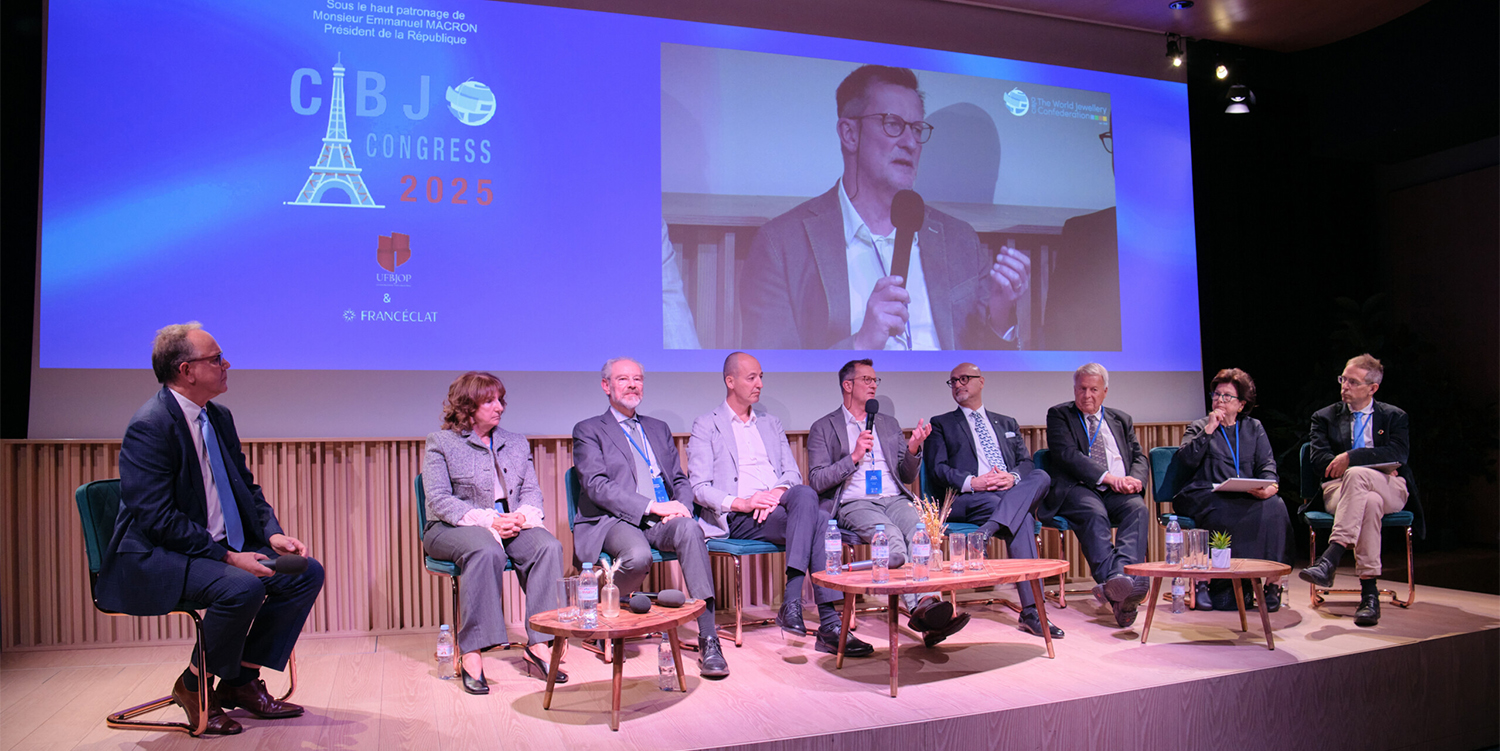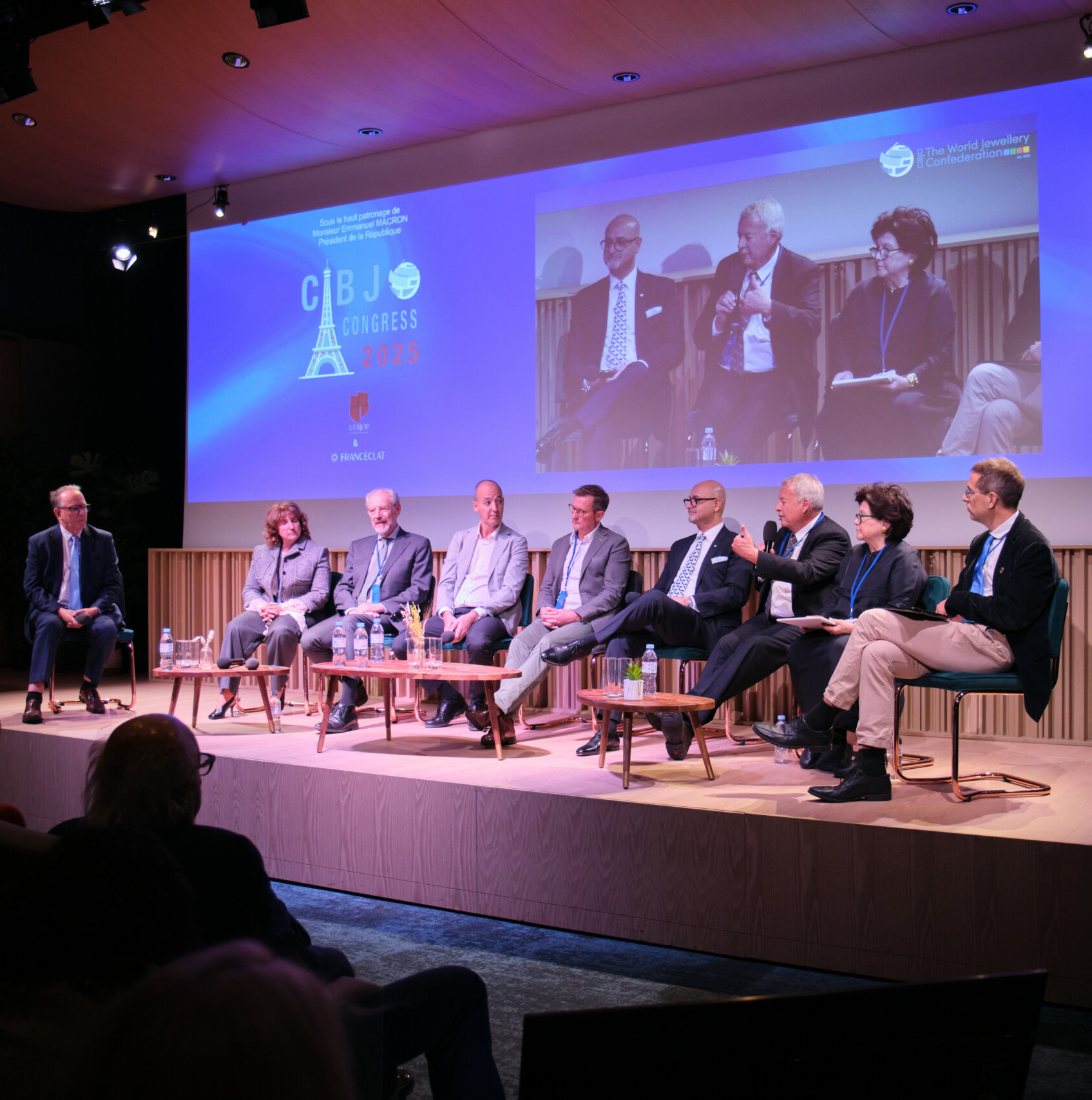CIBJO panel sees big AI-led changes in jewellery value chain,
likely job losses, employment shifts
The panel discussing the impacts both positive and negative on the jewellery sector, during the second day of the 2025 CIBJO Congress on October 28, (from left): David Brough, Jewellery Outlook, moderator; Marie Christine Grocq Parruitte, Présidente groupe MCGP; Stephane Fischler, Chair, CIBJO Technology Committee; David Block, CEO, Sarine Technologies; Daniel Nyfeler, CEO, Gübelin Gem Lab; Mahiar Borhanjoo, Chief Commercial Officer, De Beers Group; Jacques Voorhees, CEO, Icecap,AI; Lisa Koenigsberg, President, Initiatives in Arts & Culture; and Jon Key, Founder Managing Director, Key and Co Ltd.
OCTOBER 28 2025
A panel discussion at the 2025 CIBJO Congress in Paris has highlighted big AI-led changes to processes along the jewellery supply chain, with expectations of job losses in diamond grading and gemstone testing and the emergence of new roles in the industry.
The panel, moderated by Jewellery Outlook Editor David Brough, aimed to give insights on how AI will shape the future of the jewellery industry and impact employment along the supply chain.
Stephane Fischler, Chair of CIBJO’s Technology Committee, presented the findings of a special CIBJO report looking at the impact of AI on the jewellery industry.
In the jewellery industry, the organisations that succeed in integrating AI creatively, strategically and ethically will see productivity soar while remaining firmly in charge of the decision-making process, he said.
Software entrepreneur Jacques Voorhees told the panel about plans to develop new retail systems featuring digital retail assistant bots that could trigger sales and boost profitability, but he said job losses and the transformation of some roles could ensue.
Marie-Christine Grocq Parruitte of manufacturing entity MCGP spoke of how AI had made jewellery manufacturing and design processes more efficient, but said that she believed that in design areas emotions could not be replicated by AI.
She said routine roles were being replaced by AI technologies.
Mahiar Borhanjoo of De Beers Group said that AI-led technologies were already aiding diamond identification, and in charting the results of sales and marketing campaigns via data.
Sarine CEO David Block said that AI had supported new technologies used in diamond grading, adding that diamond grading jobs could be lost and other roles that he did not specify, could emerge.
Daniel Nyfeler of Gubelin spoke about how Gubelin was harnessing AI-led software to drive forward coloured gemstone reporting.
He said machines could eventually replace labs to some degree, potentially freeing up gemmologists to other roles such as field gemmology.
Jon Key of consultancy Key & Co noted that the changes coming to the jewellery manufacturing chains, were already happening widely in other industries too, and spoke of the need to regulate AI.
Lisa Koenigsberg, a thought leader in visual arts, who heads Initiatives in Art and Culture, raised concerns over the rollout of AI, saying nobody knows what future will bring, and adding that AI needs to be seen as a tool to help human
TIER 2 SPONSORS










